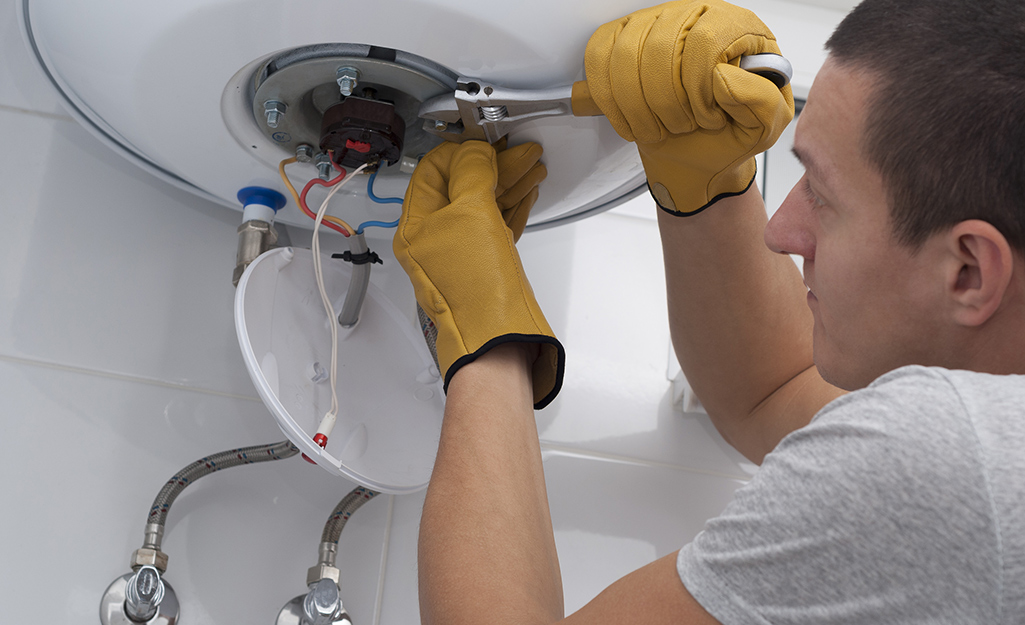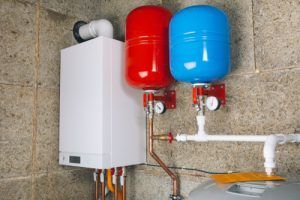What are your opinions on Common Hot Water Heater Problems?

A hot water heater is among one of the most crucial fundamental devices that can be discovered in a residence. With water heaters, you don't need to experience the anxiety of home heating water manually every time there is a requirement to take a bath, do the laundry, or the recipes. There is constantly a possibility that your water heating unit would act up as with the majority of mechanical gadgets.
It is important to note any little malfunction and also tackle it quickly before points get out of hand. Many times, your hot water heater begins to malfunction when there is a build-up of debris as a result of continual use. As a preventative measure, periodic flushing of your water heater is advised to stop sediment accumulation as well as prevent practical failing.
Common hot water heater emergencies and exactly how to handle them
Insufficient warm water
It might be that the water heating system can't sustain the hot water need for your apartment or condo. You can upgrade your water heating system to one with a larger capacity.
Fluctuating water temperature.
Your water heating unit might start creating water of different temperatures usually ice hot or cool warm. There could be a requirement to change either the thermostat or the home heating device of your water heating system.
Leaking water heater tank.
A dripping storage tank could be a sign of deterioration. It can cause damages to the flooring, wall and also electric devices around it. You can also be at danger of having your house flooded. In this situation, you must turn off your hot water heater, enable it to cool down, and thoroughly seek the resource of the problem. Sometimes, all you need to do is to tighten up a couple of screws or pipe connections in cases of small leaks. But if this does not work and the leakage continues, you might need to use the services of a specialist for an appropriate substitute.
Blemished or stinky water
When this happens, you require to know if the problem is from the container or the water resource. You are certain that it is your water heating unit that is defective if there is no funny odor when you run chilly water. The odiferous water can be brought on by rust or the accumulation of microorganisms or sediments in the water heater tank. You can attempt flushing out your storage tank or changing the anode if the trouble persists once you discover this. The function of the anode is to clean out bacteria from your container. Because the anode pole substitute needs a thorough expertise of your water heating system, you will certainly need the aid of a specialist.
Conclusion
Some homeowners overlook little warning and minor faults in their hot water heater system. This only leads to more damages as well as a feasible complete breakdown of your home appliance. You ought to handle your hot water heater mistakes as soon as they come up to prevent even more expenditures and also unneeded emergency troubles.
With water heating systems, you do not need to go with the stress and anxiety of heating water manually every time there is a need to take a bathroom, do the laundry, or the dishes. It might be that the water heating system can't support the hot water demand for your apartment or condo. Your water heater might start generating water of various temperatures usually ice cool or hot warm. If there is no funny scent when you run chilly water, after that you are particular that it is your water heating unit that is defective. The smelly water can be caused by corrosion or the accumulation of microorganisms or sediments in the water heating unit storage tank.
What’s Wrong With My Water Heater?
Not Enough Hot Water
You probably encounter this problem in the shower or while washing dishes. As you run your water, you’ll notice it starting to cool down. Turning up the hot faucet may not work, or it may only heat the water for a short period. Your hot water probably comes back and works normally one or two hours after you use it up.
If you’ve never had enough hot water, your heater may be too small for your home. If you haven’t had a problem until recently, there’s probably something’s wrong with your heater’s thermostat. Try adjusting it to see if you can feel a difference. Even if the thermostat’s working, the heating element itself could have burnt out. It’s also possible that a clog has restricted water flow into or out of the heater. Luckily, none of these problems are hard to fix, as long as you call them in early.
Water is Too Hot
Unregulated water heaters can make water dangerously hot. You probably have this problem if you’ve been scalded by your hot water. It’s also a likely culprit if you have trouble getting your faucets to produce a comfortable temperature. This problem is easy to fix, but it can also be a serious health hazard if you don’t address it. If you think your water is too hot, don’t doubt yourself; look into it!
Start by finding your heater’s thermostat and mark its position with a pen. Turn the thermostat to a cooler setting. Wait a couple hours to see if the problem is solved. If it isn’t, listen for boiling in the tank and look for water that comes out of the faucet steaming. In those cases, your temperature-pressure relief valve may be malfunctioning. This is a serious problem that can be dangerous, so you should have it looked at right away.
Discolored or Smelly Water
If all your water looks rusty or smells weird, there’s probably a problem with your pipes. If only your hot water looks weird, however, your water heater is probably at fault. Hot water discoloration comes in several varieties. It could look orange or brown-ish, taste rusty, or feel grainy. It could also look yellow or green-ish and taste gross or feel slimy. Either way, it’s a sign that there’s something wrong with your water heater’s tank.
Usually, hot water discoloration means sediment has built up in your tank. Sediment is made up of hardened minerals that accumulate on the inside of the water heater’s walls. When enough sediment builds up, it causes all kinds of problems–including your discolored water. Try flushing your water heater tank to clean out built up sediment. If the water still tastes rusty, your tank’s rust-preventing anode rod may have worn out. A pro can replace an anode rod easily, but without one, your tank could rust beyond repair relatively quickly.
Leaking
Water heaters can leak from several different places, and each leak means something different. If the leak is coming from a pipe above the heater, it’s possible the tank itself hasn’t been compromised. The cold inlet, hot outlet, and T&P pipes could all leak from above. Try tightening the problematic valve. If that doesn’t work, then the valve or pipe will have to be replaced.
If the leak is coming from the bottom of the tank, it’s important to determine exactly where it is. The leak could be coming out of the drain valve or your T&P valve below the tank. You can replace those valves and preserve the tank itself. If you notice the water tank itself leaking, however, that probably means it’s corroded beyond the point-of-no-return. Leaking water heaters are a big deal, so you should get yours replaced ASAP.
https://www.punctualplumberdallas.com/blog/whats-wrong-water-heater/

I stumbled upon that page about Common Hot Water Heater Problems when browsing the web. Enjoyed our write-up? Please share it. Help somebody else locate it. Thank you for going through it.
Plumbing SOS? Reach out!